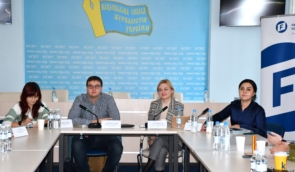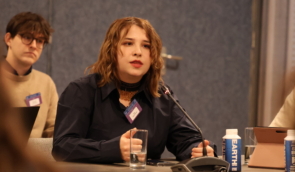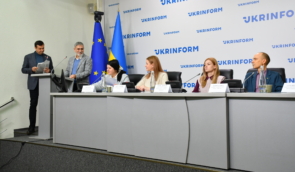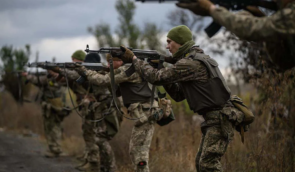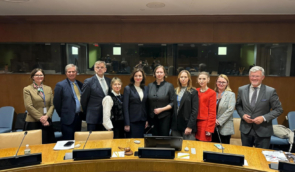Planned policy and signs of genocide traced in all Russia’s actions against Ukrainian children – report by human rights defenders
Russia deports Ukrainian children in a deliberate and planned manner, in particular, from closed children’s institutions, and by sending children to camps. Moreover, the Russians arrange educational military-patriotic events for “difficult” teenagers.
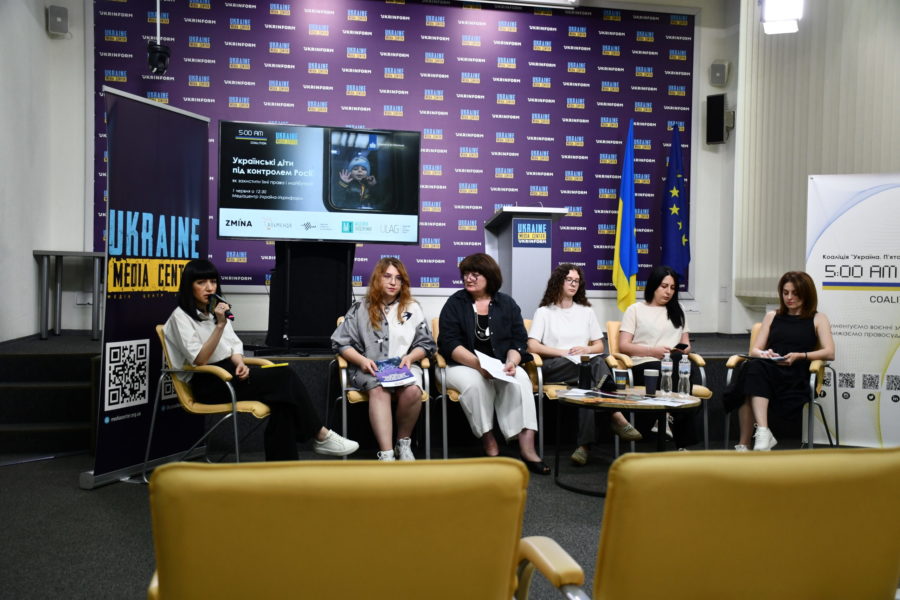
Onysiia Syniuk, legal analyst at the Human Rights Centre ZMINA, said this during a press conference in Kyiv on June 1. She also presented a report on the deportation of Ukrainian children by Russia.
The report is based both on data from open sources and interviews with Ukrainians who suffered or witnessed the crime of deportation, in particular, managers, employees and residents of children’s institutions. The report is also based on the analysis of statements made by the state authorities of the Russian Federation and occupation administrations.
According to Syniuk, Russia started taking children from the occupied territories of Crimea, Donetsk and Luhansk regions back in 2014. But the “evacuation” from the occupied territories of Donetsk and Luhansk regions began immediately before the start of the full-scale invasion, on February 18, 2022. Children from orphanages and boarding schools were taken out first. So, already on February 19, 2022, the first buses with 225 pupils of Donetsk boarding school No. 1 arrived at the border of the Russian Federation.
Under international humanitarian law, the expert says, the occupying power has no right to displace children to other countries, except in cases where there is a threat to health and the need for treatment. In addition, children cannot be transferred within the occupied territories, except for evacuation.
Russia sends Ukrainian children to Russian and Crimean camps, declaring the need to improve children’s health. However, it does so with violations: the Russian Federation uses the vulnerable state of parents, their desire to protect their children from shelling and the difficulties of life in the occupied territory, and misleads about the nature and duration of such “rest”. After the shifts in the camps are over, they are usually continued without returning children to their parents for various reasons: danger of shelling, pro-Ukrainian views, etc. There were also cases when children were moved from one camp to another without notifying their parents.
“We also should not forget about the role of Belarus: we know about the displacement of 350 children from Mariupol in September 2022 to the Dubrava health resort in Soligorsk district of Belarus on the instructions of Lukashenka, and the process was organized by the Alexei Talay Foundation. According to published data, Belarus was supposed to receive more than 1,000 ‘children from hot spots’ in the autumn,” Syniuk says.
During the “rest”, children are also involved in educational and cultural activities according to the Russian curriculum, and since the beginning of last autumn, most of them have been placed in local educational institutions, where they teach according to the Russian curriculum. That is, such camps are also used to “re-educate” children.
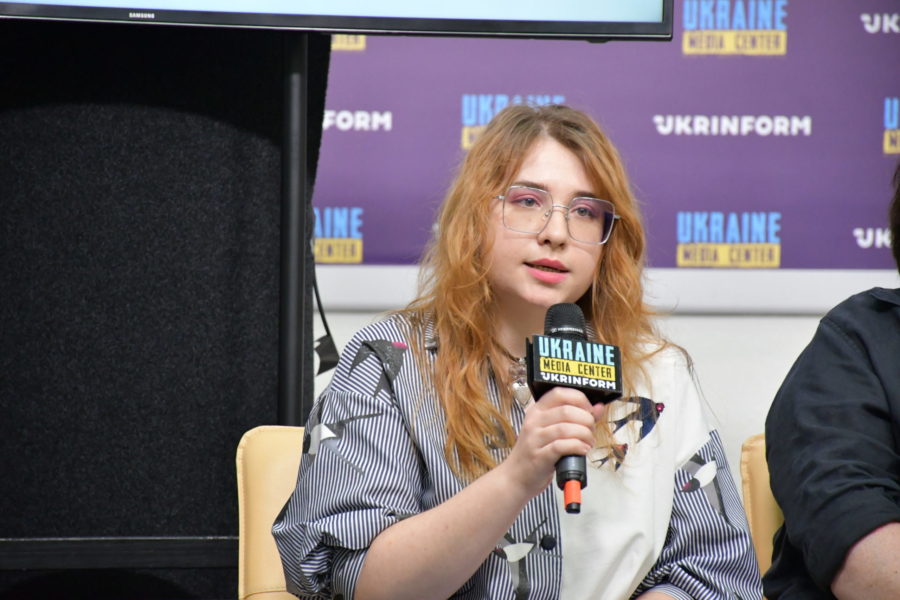 Onysiia Syniuk
Onysiia SyniukA separate program was planned for “difficult” teenagers: 200 such children from Russia, including teenagers from the “LPR” and “DPR”, were brought to “preventive work for military and patriotic education.” They were taken to the Russian Special Forces University in Gudermes, the Chechen Republic of the Russian Federation, they were given a tour of the training ground and a lecture about the “heroes of the Russian Guard”. The decision to send teenagers to this program was made at a meeting between Maria Lvova-Belova and Ramzan Kadyrov, the head of the Chechen Republic within the Russian Federation, and the organization of the trip was headed by Minister of National Policy, Foreign Relations, Press and Information of Chechnya Akhmed Dudayev.
Onysiia Syniuk says: Russia also violates the child’s right to preserve individuality, in particular, citizenship, when it places Ukrainian children under the care of Russian families and recognizes them as citizens of the Russian Federation.
“All factors signal a planned campaign of violent exclusion of these children from the Ukrainian national group. Adoption of children is especially dangerous as information about children is closed, and new ‘parents’ can change their personal data, which makes further identification of a child impossible. Under any circumstances, the occupying power has no right to change the civil status of children,” Syniuk notes.
She adds that all of Russia’s actions — education according to Russian standards, isolating children from the Ukrainian environment, and transferring them to Russian families without looking for relatives and contrary to the obligation to transfer children to Ukraine — testify to the crime of genocide.
Read the report in English and Ukrainian here.
Watch the video from the event at the link.
If you have found a spelling error, please, notify us by selecting that text and pressing Ctrl+Enter.

